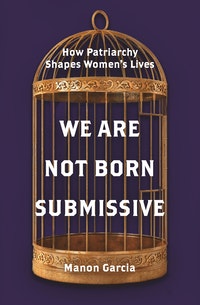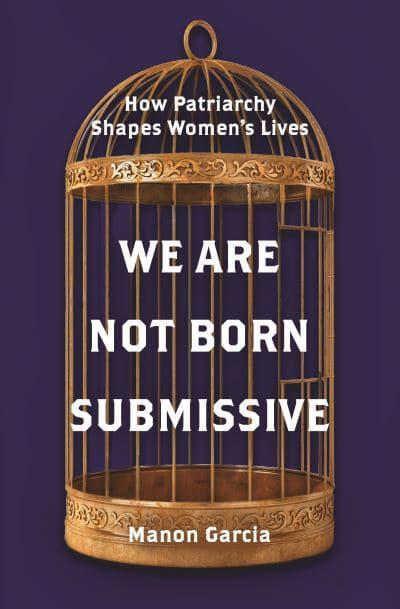We are not born submissive
how patriarchy shapes women's lives
- ISBN: 9780691201825
- Editorial: Princeton University Press
- Fecha de la edición: 2021
- Lugar de la edición: Princeton. Estados Unidos de Norteamérica
- Encuadernación: Cartoné
- Medidas: 21 cm
- Nº Pág.: 234
- Idiomas: Inglés

What role do women play in the perpetuation of patriarchy? On the one hand, popular media urges women to be independent, outspoken, and career-minded. Yet, this same media glorifies a specific, sometimes voluntary, female submissiveness as a source of satisfaction. In philosophy, even less has been said on why women submit to men and the discussion has been equally contradictory—submission has traditionally been considered a vice or pathology, but female submission has been valorized as innate to women’s nature. Is there a way to explore female submission in all of its complexity—not denying its appeal in certain instances, and not buying into an antifeminist, sexist, or misogynistic perspective?
We Are Not Born Submissive offers the first in-depth philosophical exploration of female submission, focusing on the thinking of Simone de Beauvoir, and more recent work in feminist philosophy, epistemology, and political theory. Manon Garcia argues that to comprehend female submission, we must invert how we examine power and see it from the woman’s point of view. Historically, philosophers, psychoanalysts, and even some radical feminists have conflated femininity and submission. Garcia demonstrates that only through the lens of women’s lived experiences—their economic, social, and political situations—and how women adapt their preferences to maintain their own well-being, can we understand the ways in which gender hierarchies in society shape women’s experiences. Ultimately, she asserts that women do not actively choose submission. Rather, they consent to—and sometimes take pleasure in—what is prescribed to them through social norms within a patriarchy.
Moving beyond the simplistic binary of natural destiny or moral vice, We Are Not Born Submissive takes a sophisticated look at how female submissiveness can be explained.
1 Submission: A Philosophical Taboo
Female Submission and Feminism 5
Submission from Women’s Point of View 8
A Matter of Perspective 10
Which Women? 13
Domination and Submission 15
With Beauvoir 19
2 Is Submission Feminine? Is Femininity a Submission? 22
Are Women Masochistic? 23
Submission: A Feminine Virtue? 27
To Be a Woman Is to Submit 32
3 Womanhood as a Situation 41
Sexual Difference Is Not a Matter of Essences 42
Femininity as Social Construction? 46
Situation and Sexual Difference 50
Femininity, Situation, and Destiny 65
4 Elusive Submission 68
Submission and Ordinary Life 69
An Analysis of Power from the Bottom Up 73
The History of an Inversion 76
What Can We Know about Submission? 78
Can the Subaltern Speak? 82
5 The Experience of Submission 87
A Privileged Position 88
An Original Phenomenological Method 92
Phenomenology and the Silence of the Oppressed 99
The Experience of All Women? 106
6 Submission Is an Alienation 111
Oppression as Alienation 112
The Woman-Object 122
7 The Objectified Body of the Submissive Woman 132
Woman Cannot Abstract Herself from Her Body 133
The Biological Body Is Social 136
A Lived Body That Can Be Objectified:
What Men and Women Have in Common 140
The Alienation of Women: The Objectified
Lived Body 147
From the Body-Object to the Passive Prey 154
8 Delights or Oppression: The Ambiguity
of Submission 157
Beauty 158
Love-Abdication 160
The Power of Submission 169
9 Freedom and Submission 177
An Ethics of Freedom 178
Why Women Submit to Men 187
Toward Emancipation 197
Conclusion: What Now? 204









